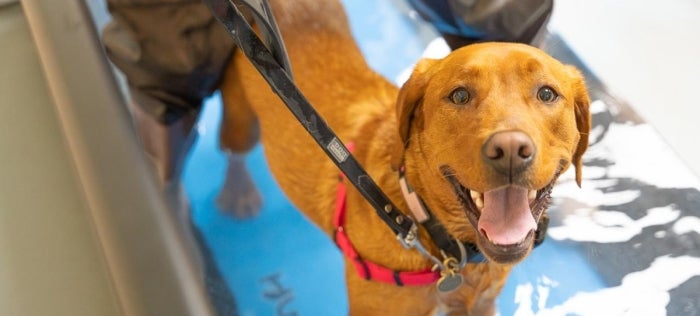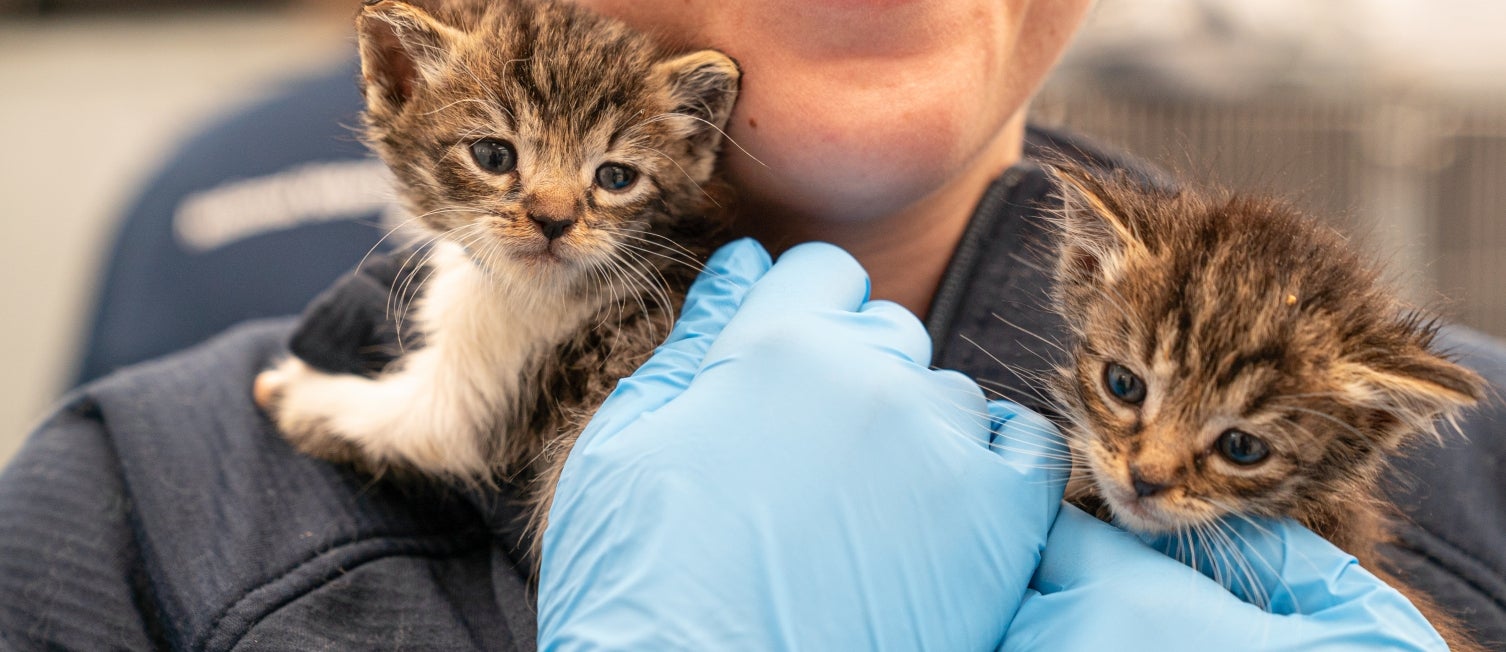
Veterinary ER expansion brings expert care to more patients
Quorra, a 6-year-old French bulldog from Florida, was on a cross-country adventure with her human family this year when things took a turn for the worse.
During a camping trip in Yosemite, Quorra started breathing heavily and limping on one of her back legs. Within 24 hours, she could barely walk.
“It went from what we thought was a minor strain to a very serious injury,” said Tyson Sailer, Quorra’s owner. “We were at a loss for where to go, so we did some research and learned that UC Davis had the best veterinary specialists around.”

The Sailers rushed Quorra to the UC Davis School of Veterinary Medicine’s emergency room. A day later, they received a call that Quorra needed immediate spinal surgery. Her spine had a herniated disc that could cause paralysis if left untreated.
“It all happened so fast,” Sailer said. “We were extremely impressed at the level of care she received.”
The Sailers were some 2,500 miles from their home vet in Florida, so having access to world-renowned veterinary care at that crucial moment was a “huge blessing,” he said.
It has been several weeks since her surgery, and Quorra is back to her “playful, spunky self,” Sailer said. “It’s like it never happened.”
$2.1 million gift saves lives
Quorra was treated in the newly renovated emergency room (ER) and intensive care unit (ICU), an expansion that was supported by a $2.1 million gift from an anonymous donor.
The expansion nearly doubled the size of the existing facility, adding exam tables and oxygen cages for patients along with a new diagnostic laboratory and staff lounge. The improved treatment space allows veterinary staff to care for patients more optimally.
“Philanthropic support like this empowers us to continue providing the highest level of care,” said Brenda Keegan ’13, small animal emergency and critical care assistant manager. “We are so thankful to the donors who made this possible.”
Admittances to the ER have more than doubled since before the pandemic, with an average of more than 900 cases per month in 2022 and some months seeing more than 1,200 patients.
ER veterinarians work on a wide array of cases daily, from rattlesnake bites and lacerations to allergic reactions and respiratory distress. Some cases are life-threatening and require immediate care, while others involve temporary treatment and referral to the hospital’s specialty services.
Veterinarian Anna Bank has been working at the UC Davis William R. Pritchard Veterinary Medical Teaching Hospital since 2020, when she moved to California from Sweden to begin an internship. In 2022, she began her three-year residency in small animal critical care.
“The level of knowledge we have in our facility, and at this university, is incredible,” Bank said.
The university’s teaching hospital is home to one of the best veterinarian residency training programs, offering more than 35 specialties.
Bank said working in a state-of-the-art space provides advanced learning opportunities, especially when experts collaborate to solve a complex case.
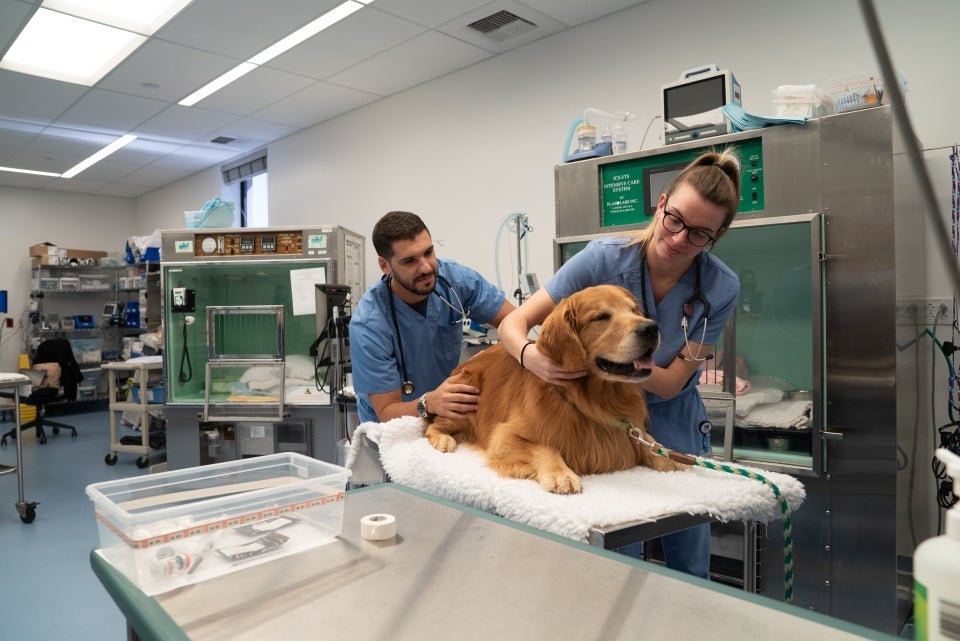
Saving Suzy the sloth
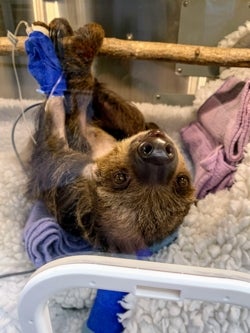
Suzy, a young two-toed sloth, was one of those cases. Suzy was treated in the new facility, and her case was so unique that it required an entire team of specialists to figure out what was ailing the 8-pound patient.
“I truly believe if we had not brought her to UC Davis, she might not be with us today,” said Jessica Carscadden, assistant general manager at SeaQuest Folsom, Suzy’s home. “We knew there was nowhere better she could have gone for care.”
Early one morning in May, Carscadden called the Small Animal Clinic because Suzy was lethargic and uninterested in her favorite foods. She just wasn’t her sweet, sassy self, Carscadden explained. The UC Davis veterinary team told her to bring Suzy in as soon as possible.
Although the Small Animal Clinic typically treats cats and dogs, UC Davis also has veterinarians who specialize in exotic animals, including ferrets, turtles, birds and chinchillas. But this was the first time anyone on staff had treated a sloth. The team called in all hands—from emergency services, internal medicine, exotic species, neurology and surgery—to assess and care for Suzy.
Suzy was hospitalized for over a week in the ICU, receiving constant care that included fluids, nutrients and medication to support her immune system.
Thanks to the life-saving care she received, Suzy made a strong recovery. Today, she enjoys hanging out in her spacious enclosure and snacking on one of her favorite treats, mulberry leaves.
“I appreciate all the time and attention to detail they put into Suzy’s care,” Carscadden said. “We would not have been able to get that level of care anywhere else. I will be forever thankful to UC Davis.”
Philanthropy elevates veterinary medicine
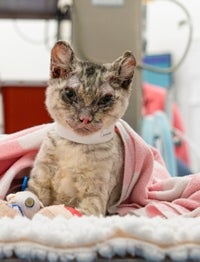
Generous donors have helped support new developments throughout the UC Davis Veterinary Medical Center, including the ER/ICU expansion, which is part of a campaign to transform the current teaching hospital into the foremost veterinary facility in the world.
“Philanthropy is driving the expansion of our first-class veterinary instruction, research and clinical care as we continue to position UC Davis at the top of veterinary education,” said Mark Stetter, dean of the School of Veterinary Medicine.
The School of Veterinary Medicine is amidst the largest fundraising effort in its history, with a goal of raising $75 million by the end of the 2023-24 academic year.
The ER/ICU is one of two impactful projects that will bookend the school’s 75th anniversary year, along with the All Species Imaging Center which is projected to be complete in 2024.
Philanthropic support will enable the university to open the Dentistry, Oral, and Maxillofacial Surgery Center to allow faculty to continue advancing the field, ultimately leading to increased levels of patient care beyond its current status. Recently completed projects include the Center for Advanced Veterinary Surgery, the Feline Treatment and Housing Suite, and the Cardiology Service Suite.
UC Davis also plans to build the Equine Performance and Rehabilitation Center, Livestock and Field Service Center and an entirely new Small Animal Hospital later this decade.
Donor funding launches new orthopedic surgery center
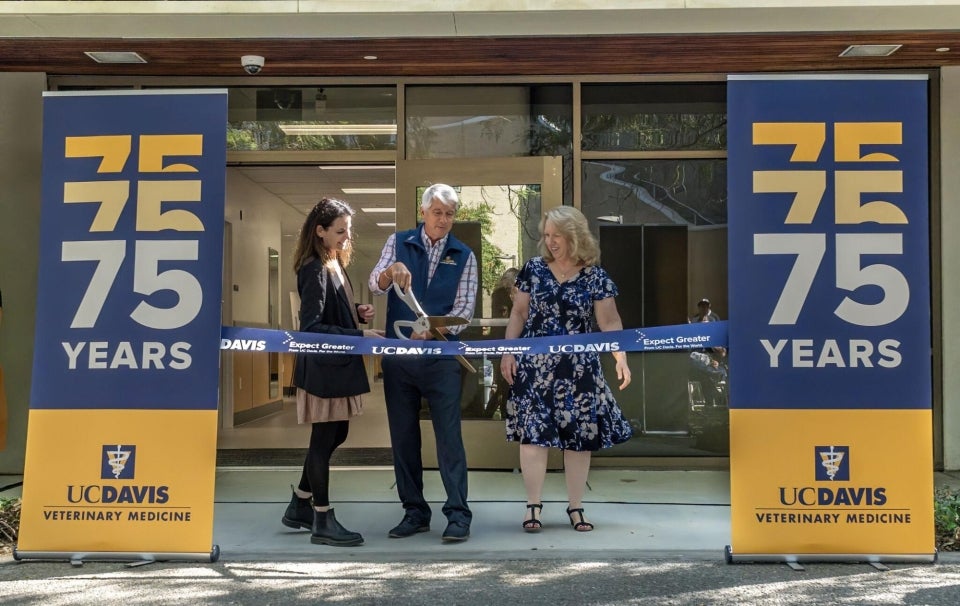
This fall the UC Davis School of Veterinary Medicine celebrated the opening of a new Center for Advanced Veterinary Surgery, a 7,300 square foot, state-of-the-art orthopedic surgery facility that represents the start of a new clinical era of the school.
With three operating rooms, a radiology suite and other advanced features, the world-class space will help reduce wait times for surgeries and allow more training opportunities for residents and fellows.

